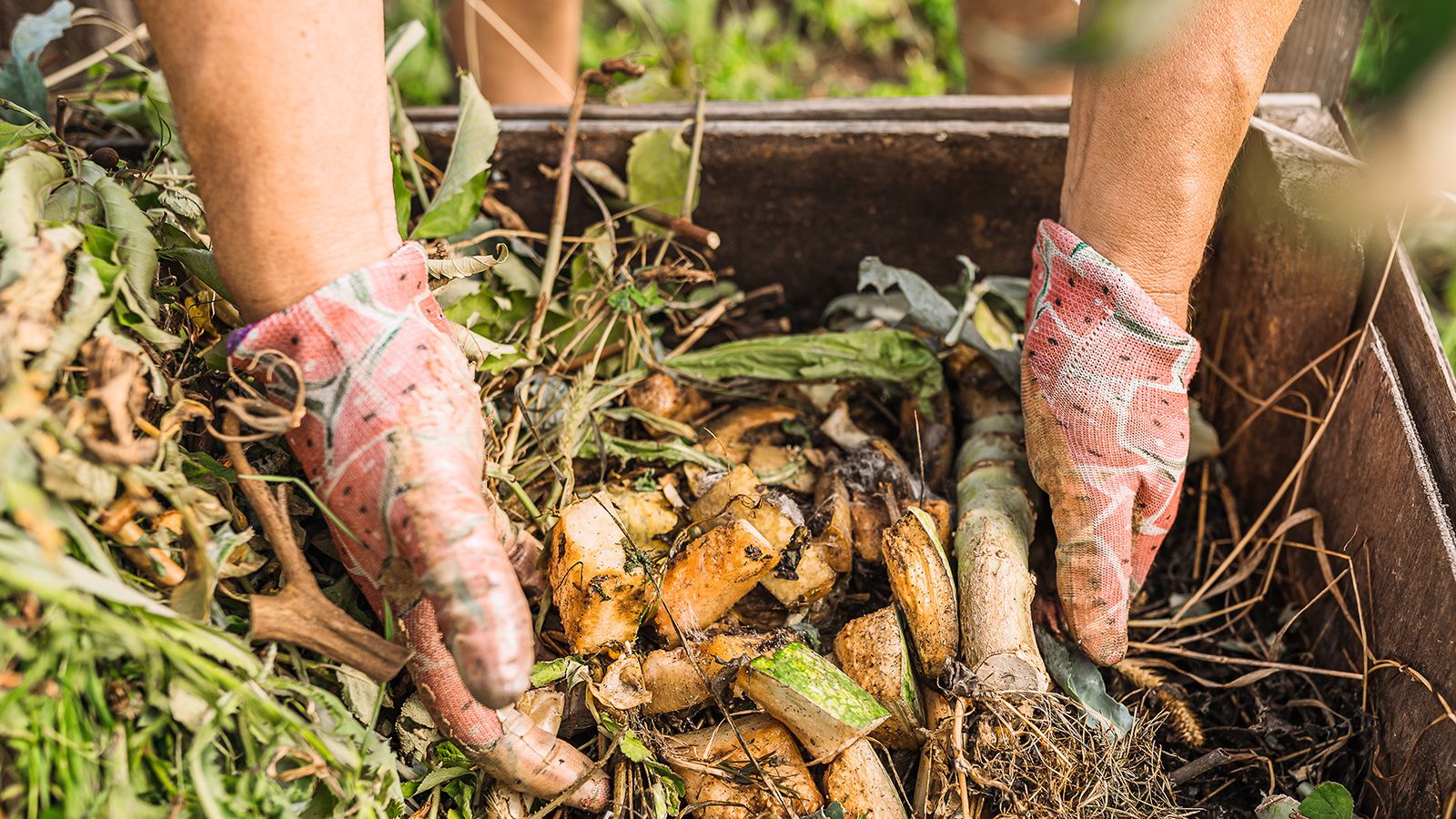Yes, Composting Better Than Landfill. Composting is a more environmentally friendly alternative to landfills for several reasons. Firstly, composting helps to reduce methane gas emissions, which are a potent greenhouse gas and contribute to climate change.
Secondly, composting enriches the soil with nutrients and microorganisms, improving soil structure, water-holding capacity, and overall plant health.
As a result, it reduces the need for fertilizers and pesticides. Thirdly, composting reduces the costs and carbon emissions associated with hauling and processing waste.
Finally, composting helps to decrease the amount of waste that ends up in landfills. Unlike landfills, composting allows microbes to breathe in the presence of oxygen, which transforms waste into valuable organic matter without producing methane gas.
Composting is an environmentally friendly method of waste disposal, whereas sending waste to a landfill contributes to pollution and greenhouse gas emissions. Composting transforms organic waste into nutrient-rich soil, reducing the amount of waste that goes into landfills.

Why is Composting Better Than Landfill?
Composting is a better choice than landfill when it comes to recycling. This is because composting has numerous benefits, including reducing methane emissions.
When food waste is left to rot in landfills, it releases methane, which is a potent greenhouse gas.
Approximately one-third of the food produced globally, equivalent to about 2.5 billion tons, is lost or wasted each year. Composting can help reduce methane emissions by diverting organic waste from landfills.
Additionally, composting reduces the volume of waste in landfills and recycles organic materials into a valuable soil amendment. Composting facilities also create green jobs and provide a boost to the surrounding community.
Furthermore, compostable materials are always fresh, which means that customers get a higher-quality product.

Does Composting Reduce Emissions?
Composting is a sustainable waste management practice that significantly reduces methane emissions compared to landfilling organic waste. As reported by NC State University (source: https://news.ncsu.edu/2020/12/compost-landfill-environment/), composting promotes aerobic decomposition, producing minimal methane, a potent greenhouse gas. In contrast, landfills, where organic materials decompose anaerobically, release substantial methane.
Composting not only curbs greenhouse gas emissions but also yields nutrient-rich compost, improving soil quality and reducing the need for chemical fertilizers.
By diverting organic waste from landfills, composting serves as an environmentally friendly solution to mitigate climate change and enhance sustainable agriculture.
Why Composting Is a Sustainable Solution For Organic Waste?
Composting is an eco-friendly alternative to dumping organic waste in landfills. By composting organic materials like food scraps and yard waste, we can prevent valuable resources from being wasted.
According to EPA.GOV, food waste was the fourth largest category, estimated at 63.1 million tons or 21.6 percent of total generation in 2018. Yard trimmings were the second largest category, estimated at 35.4 million tons or 12.1 percent of total generation in 2018.
Process of composting and its positive environmental impact:
- Composting involves the decomposition of organic matter through the activity of microorganisms.
- This process produces nutrient-rich acidic compost that can be used to improve soil health and support plant growth.
- Composting also helps reduce the need for synthetic fertilizers, which can have negative environmental impacts.
Effects of composting on soil health and water quality:
- Adding compost to soil enhances its structure, moisture retention, and nutrient content.
- Compost helps prevent soil erosion and improves microbial activity, leading to healthier and more productive soil.
- When used as a soil amendment, compost can help protect water quality by reducing runoff and the leaching of pollutants.

What Is The Hazards Of Landfilling In Waste Management?
The hazards of landfilling pose a crisis in waste management, with negative consequences for the environment. Landfills not only take up valuable land space, but they also create a range of environmental hazards.
Decomposing waste releases greenhouse gases like methane, which contributes to climate change and global warming. Landfill leachate, a contaminated liquid that seeps through the waste, can contaminate water sources and harm aquatic ecosystems.
Additionally, landfills produce air pollution through the release of toxic chemicals and volatile organic compounds.
Here is a brief summary of the hazards associated with landfills:
| Hazard Type | Description |
|---|---|
| Environmental Hazards | – Contamination of soil and water |
| – Fires and explosions | |
| – Alteration of fauna | |
| – Land pollution | |
| – Landscape degradation | |
| – Air pollution | |
| – Health issues | |
| Odor | – Production of objectionable odors |
| Gas Emissions | – Emission of dust and gases (methane, CO2, ammonia, sulfides, hydrogen sulfide) |
| Health Hazards | – Formation of dioxin, harmful to human health |
| – Spread of diseases (tuberculosis, pneumonia, diarrhea, tetanus, whooping cough) due to improper waste management | |
| Accidents | – Occasional accidents in landfill sites |
| Injury to Workers | – Needle stick injuries |
| – Back strains | |
| – Infection by pathogens | |
| Other Hazards | – Smoke |
| – Noise | |
| – Insect infestations (bugs) | |
| – Reduced value of surrounding areas |
Frequently Asked Questions On Compost Vs Landfill
What Is The Difference Between Composting And Landfilling?
Composting is a natural process where organic waste is broken down into nutrient-rich soil, while landfilling involves burying waste in a designated area. Composting helps reduce greenhouse gas emissions and produces valuable soil amendments, whereas landfilling contributes to pollution and takes up valuable space.
How Does Composting Benefit The Environment?
Composting is an environmentally friendly waste management solution. It reduces the amount of waste sent to landfills, lowers greenhouse gas emissions, and helps soil retain moisture and nutrients. Additionally, composting reduces the need for chemical fertilizers and promotes healthier plant growth.
Why Is Landfilling Considered Harmful?
Landfilling is harmful due to several reasons. It takes up significant space, emits harmful greenhouse gases like methane, and poses a risk of water and soil contamination. Additionally, harmful substances can enter the atmosphere when waste decomposes, impacting air quality and overall environmental health.
It is therefore important to explore alternative waste management methods like composting.
Conclusion
Composting and landfilling are two widely used methods for waste management. While both play crucial roles, composting offers numerous environmental benefits compared to landfilling. Composting enriches the soil, reduces greenhouse gas emissions, and conserves resources. By diverting organic waste from landfills into composting systems, we can make a significant positive impact on our environment.

I am a graduate of Bangladesh Agricultural University, where I delved into various agricultural disciplines, equipping me with a profound understanding of agriculture. Beyond academics, I have hands-on experience in gardening and crop cultivation. My passion is to embrace sustainable farming and horticulture. With a BSc in Agriculture, I am dedicated to promoting environmentally conscious and efficient agrarian practices.
Bachelor of Science (BSc) in Agriculture (Hons.)
Master of Science. (Sustainable Agriculture & Food Security ) (MS)
Bangladesh Agricultural University



